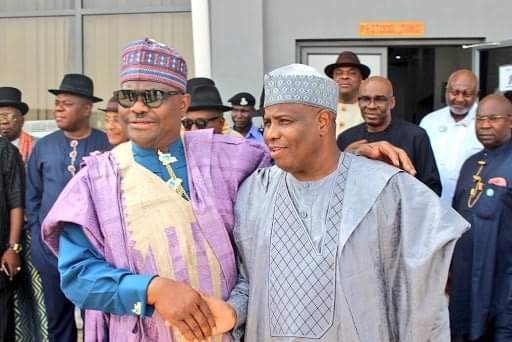
A splinter northern caucus has emerged in the House of Representatives. The group is moving to push the interests of minorities in the North, The PUNCH has learnt.
The group, which is dominated by lawmakers from the North-Central geopolitical zone, as well as Southern Kaduna and other parts of the North-West, is particularly seeking to challenge the Fulani hegemony, which has allegedly led to marginalisation of minority tribes in the North, as well as the Hausa.
Our correspondent gathered that the group is made up of members of the Peoples Democratic Party and other opposition parties.
While there are opposition voices from prominent groups and persons from the North, the northern lawmakers hailed the Southern Governors’ Forum over its recent meeting in Asaba, the Delta State capital, where it passed a nine-point resolution.
On Thursday, the group issued a statement signed by Messrs Amos Gwamna (Kaduna), Solomon Maren (Plateau), Rimande Shawulu (Taraba), Mark Gbillah (Benue), Tajudeen Yusuf (Kogi) and Usman Sokodabo (FCT), backing the southern governors on their recommendations on the affairs of the country.
Gbillah later withdrew from the statement.
When contacted on Monday, Yusuf also confirmed the move and the reason behind it.
The lawmaker said, “We are a minority in the North and have always been oppressed. Let me tell you this: the most oppressed people in the North are the minorities. As of now, we are a minority party. Deep down in the North too, we also want the minority to have a voice.
“Majority of us in the PDP are minorities (tribes) from the North. There are a few of us from Zamfara and Sokoto. Even those from Zamfara are Hausa and they are oppressed; they are not Fulani. Zamfara is 99 per cent Fulani. People don’t understand those dynamics.”
Another prominent member of the group, who spoke to our correspondent on condition of anonymity, said the lawmakers were considering selecting a leader from among themselves, while considering the ranks and experiences of the candidates.
Yusuf, who is representing Kabba/Bunu/Ijumu Federal Constituency in Kogi, also issued a statement on Monday to back the southern governors.
The statement was titled, ‘Lawmaker Applauds Southern Governors for Rising Above Partisanship on Grazing Issue…Urges Northern Governors to Emulate Southern Counterparts…Condemns Over-Dependence on Federal Statutory Allocations.’
The lawmaker said in view of the “extreme cluelessness and bias of the APC Federal Government,” southern governors’ non-partisan objectivity deserved further applause.
According to Yusuf, the 19 northern governors to take a similarly bold, pro-people stance.
Meanwhile, a group, Oodua Youth Coalition, on Monday said it was in support of the resolutions taken by the southern governors in Asaba, Delta State, on the state of the country.
This was contained in a statement issued by the group’s President, Oluyi Akintade, and Secretary, Ajogbonlo Oluwagbenga.
“However, while waiting for these governors to stay true to their demands and see to its logical conclusion, we, at Oodua Youth Coalition, demand that the South-West governors implement these suggestions and positions in their respective states for equity and fairness,” the group added.
FG must stop foreign herders from Nigeria – ACF
In a related development, a pan-Northern socio-political organisation, Arewa Consultative Forum, has reiterated its support for the ban slammed on open grazing by southern governors.
The National Chairman of the ACF and former Minister of Agriculture, Chief Audu Ogbe, in a statement, said his group would not object to decisions taken in the best interest of Nigerians.
But he argued that mere banning must not be the case.
Ogbe said the Nigerian government should review Article 3 of the ECOWAS protocol, especially as regards the free movement of cattle and other livestock into the country without restriction.
According to him, most of the violent herders are from neighbouring countries, adding that the “ Federal Government must stop them.”
The former minister urged the Northern governors to emulate the southern governors in favour of the development of ranches across their states.













